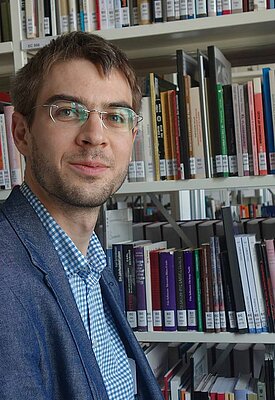Dr. Matthias Kaltenbrunner
Associated Researcher

Dr. Matthias Kaltenbrunner
Associated Researcher
| Office | Institute of East European History (IOG), Spitalgasse 2, Hof 3 |
|---|---|
| matthias.kaltenbrunner(at)univie.ac.at | |
| Telephone | +43-1-4277-41102 |
| Go to website | http://iog.univie.ac.at/mkaltenbrunner |
Research interests:
- history of transformation prior and after 1989
- national socialism
- remembrance cultures
- migration and global history
- biographical research
- Ukraine, Poland and Soviet Union in the nineteenth and twentieth centuries
Current research project:
"Cars for the East: The Informal Car Market in Poland, 1980-1990s".
In my project, I examine the transnational history of Poland in the context of the transformation period before and after the political caesura of 1989. As a case study, I investigate the informal car market, which was closely interwoven with Germany and Austria as well as the post-Soviet space. I speak of "informal" because legal, illegal and semi-legal practices are equally considered. I use criminal court records as my main source, a source that has hardly been used for this period to date.
"The Mauthausen Networks: A New Perspective on Post-War Europe"
Networks of former Mauthausen concentration camp inmates played a decisive role in shaping the political and social history of post-war Europe. While many survivors were traumatized and repressed their experiences for decades, for some the networks from the camps were crucial assets they could draw on. The political, civic, and personal projects that survivors undertook with the help of these networks went far beyond direct links to their camp pasts. The networks were an act of remarkable self-assertion by survivors and a specific appropriation of their camp experience that has not been systematically researched to date.
Publications:
"Das global vernetzte Dorf. Eine Migrationsgeschichte" (Frankfurt am Main: Campus 2017)